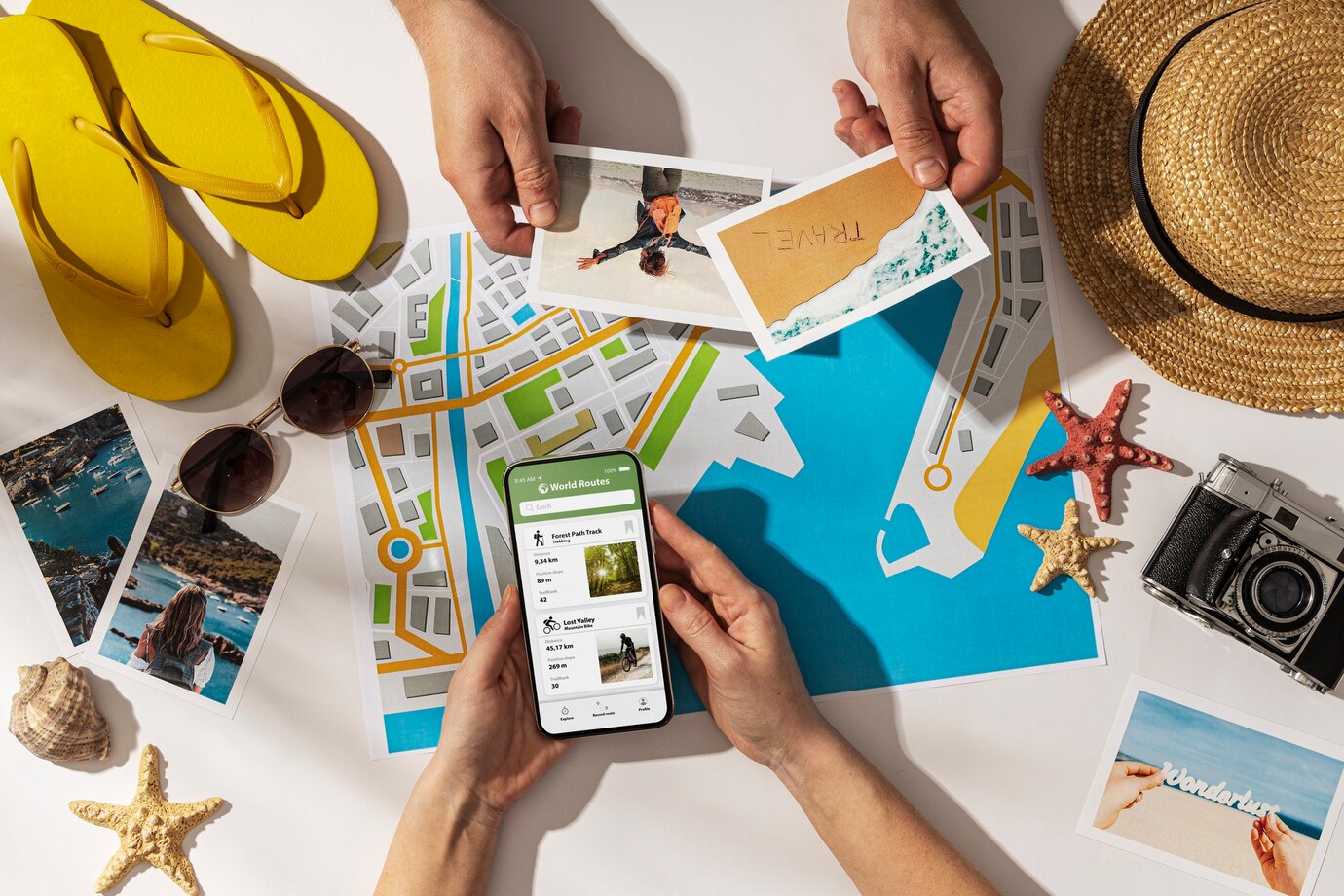Introduction
In the ever-changing landscape of the travel and tourism industry, technology has played a main role in shaping the way people plan, book, and enjoy their journeys. One of the most significant technological developments that has had a lasting impact on the industry is the development of travel apps. These applications, accessible through smartphones and tablets, have completely transformed the entire travel experience, making it more convenient, personalized, and efficient. In this blog post, we will examine how travel app development has transformed the tourism and travel industry.
1. Convenience at Your Fingertips
Gone are the days when travelers had to rely on traditional methods of planning and booking their trips. With the advent of travel apps, the entire process has become streamlined and easily accessible. Users can plan their entire itinerary, book flights, hotels, and activities, and even find local transportation – all from the convenience of their smartphones. This level of convenience has significantly contributed to the growth of the travel industry by attracting a broader audience and encouraging spontaneous travel decisions.
2. Personalization Enhances User Experience
One of the key features of travel apps is their ability to provide personalized recommendations based on user preferences. By leveraging technologies such as artificial intelligence and machine learning, these apps analyze user behavior and offer tailored suggestions for destinations, accommodations, and activities. This personalized approach enhances the overall user experience, making travel more enjoyable and meaningful for individuals with diverse interests and preferences.
3. Real-time Updates and Notifications
Travel often involves uncertainties, such as flight delays, weather changes, or unexpected events at the destination. Travel apps keep users informed with real-time updates and notifications, allowing them to adapt to changes seamlessly. This real-time communication ensures that travelers are well-prepared for any disruptions and can make informed decisions, contributing to a smoother and stress-free travel experience.
4. Integration of Augmented Reality (AR) and Virtual Reality (VR)
The integration of AR and VR technologies in travel apps has taken the virtual exploration of destinations to a whole new level. Users can now experience a virtual tour of their chosen destination, explore hotel rooms, and even preview local attractions before arriving. This immersive experience not only aids in decision-making but also builds anticipation and excitement, creating a unique and engaging pre-travel experience.
5. E-Tickets and Digital Documentation
Travel apps have eliminated the need for physical tickets and paper documentation. E-tickets for flights, electronic hotel reservations, and digital copies of important travel documents can all be stored securely within the app. This not only reduces the environmental impact but also ensures that travelers have all necessary information at their fingertips, minimizing the risk of misplacement or loss during their journey.
6. Social Connectivity and Reviews
The social aspect of travel has been significantly enhanced by travel apps. Users can share their travel plans, experiences, and recommendations with friends and followers on social media platforms directly from the app. Additionally, the integration of user reviews and ratings within the app helps fellow travelers make informed decisions when selecting accommodations, activities, or restaurants, fostering a sense of community within the travel ecosystem.
7. Contactless Payments and Digital Transactions
In the era of digital transformation, travel apps have embraced contactless payments and digital transactions. Users can seamlessly pay for flights, accommodations, and services within the app, reducing the reliance on physical currency. This not only enhances the security of transactions but also contributes to a more efficient and hassle-free travel experience.
8. Destination Management and Local Exploration
Travel apps are not only useful for planning and booking but also for navigating and exploring local destinations. These apps often provide maps, guides, and recommendations for nearby attractions, restaurants, and activities. This facilitates a smoother and more enjoyable experience for travelers, enabling them to make the most of their time at the destination.
9. Emergence of On-Demand Services
The integration of on-demand services within travel apps has further elevated the overall travel experience. Travelers can now access a wide range of services, such as on-demand transportation, tour guides, and even local experiences, directly through the app. This not only adds a layer of convenience but also opens up new opportunities for local businesses to connect with travelers, creating a more dynamic and interconnected travel ecosystem.
10. Inclusive Travel Experiences
Travel app developers are increasingly focusing on creating inclusive travel experiences for individuals with diverse needs and preferences. Apps now incorporate features that cater to travelers with disabilities, dietary restrictions, or specific cultural requirements. This inclusivity not only broadens the reach of the travel industry but also ensures that travel experiences are accessible and enjoyable for everyone, regardless of their background or abilities.
11. Collaboration with Emerging Technologies
The integration of emerging technologies, such as 5G connectivity, artificial intelligence, and the Internet of Things (IoT), continues to shape the future of travel apps. Faster and more reliable connectivity enables smoother app performance, while AI and IoT contribute to more seamless and interconnected travel experiences. As these technologies mature, travel apps are poised to become even more sophisticated, offering innovative features and possibilities that were once considered futuristic.
Conclusion
Travel mobile app development has not only revolutionized the tourism and travel industry but continues to do so at an unprecedented pace. From boosting ease and customization to encouraging sustainability and safety, travel apps have become essential tools for contemporary travelers. As technology advances, the industry can expect even more ground-breaking innovations, making travel more accessible, enjoyable, and sustainable for people around the globe. Travelers and industry stakeholders alike are poised to benefit from the continuous advancement of travel app technologies.
